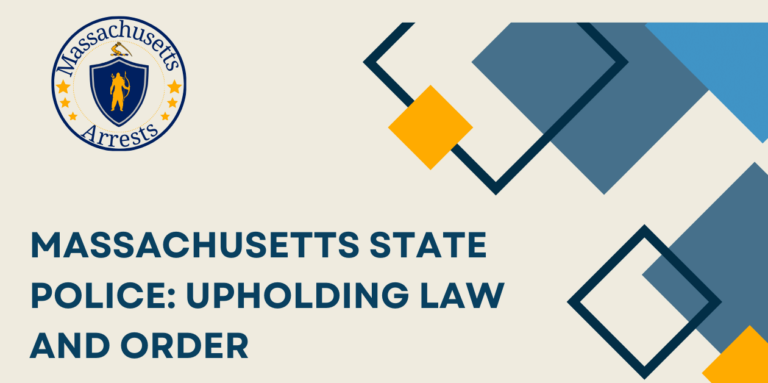Protecting Against Identity Theft: Prevention Tips
Identity theft is a growing concern in today’s digital age. With technology advancing at a rapid pace, it has become easier than ever for criminals to steal personal information and wreak havoc on unsuspecting individuals. Massachusetts, like many other states, is not immune to this threat. However, there are steps you can take to protect yourself and your loved ones from falling victim to identity theft.
In this comprehensive guide, we will explore key prevention tips specifically tailored for residents of Massachusetts. From safeguarding your social security number to securing your online transactions, we will provide you with the knowledge and tools necessary to stay one step ahead of identity thieves. Don’t let your personal information fall into the wrong hands – join us as we delve into the world of identity theft prevention in Massachusetts.
Understanding the Threat of Identity Theft
In today’s digital age, the threat of identity theft is a growing concern that affects millions of people worldwide. With technology advancing at a rapid pace, criminals have found new and sophisticated ways to steal personal information, putting unsuspecting individuals at risk.
Protecting Your Personal Information
One of the first steps you can take to protect yourself from identity theft is to safeguard your personal information. Your social security number, bank account details, and credit card information are all valuable assets that identity thieves target.
Securing Your Online Presence
In an era where online transactions have become the norm, it is crucial to secure your online presence. This includes using strong and unique passwords, regularly updating your software and antivirus programs, and being cautious when sharing personal information online.
Monitoring Your Financial Statements
Regularly monitoring your financial statements is another essential preventive measure. By keeping a close eye on your bank statements, credit card bills, and other financial documents, you can quickly identify any suspicious activity and take immediate action.
Shredding Sensitive Documents
Identity thieves often target physical documents that contain personal information. To prevent this, make sure to shred any sensitive documents before disposing of them. This includes old bank statements, credit card offers, and any other paperwork that contains personal details.
Protecting Your Social Security Number
Your social security number is one of the most valuable pieces of information an identity thief can get their hands on. To protect it, refrain from carrying your social security card with you and avoid sharing it unnecessarily. Additionally, be cautious when providing your social security number online.
Reporting Suspicious Activity
If you suspect that you have become a victim of identity theft, it is crucial to report the incident to the authorities as soon as possible. Contact your local police department and file a report. Additionally, notify your bank, credit card companies, and any other relevant institutions.
By following these preventive measures and staying informed, you can stay one step ahead of identity thieves. Don’t let your personal information fall into the wrong hands – join us as we explore the world of identity theft prevention in Massachusetts.
FAQs
What is identity theft?
Identity theft is a crime where someone wrongfully obtains and uses another person’s personal information, such as their name, Social Security number, or credit card details, without their consent, typically for financial gain.
How can I protect myself against identity theft?
To protect yourself against identity theft, you can take several preventive measures, including:
- Regularly monitoring your financial accounts and credit reports
- Using strong and unique passwords for your online accounts
- Avoiding sharing personal information on unsecured websites or over unencrypted networks
- Being cautious when providing personal information over the phone or through email
- Shredding important documents before disposing of them
What are the signs that my identity has been stolen?
Some common signs that your identity may have been stolen include:
- Unexplained withdrawals or charges on your bank or credit card statements
- Receiving bills for services or products you didn’t purchase
- Noticing unfamiliar accounts or inquiries on your credit report
- Missing mail or emails from financial institutions
- Being denied credit or receiving unexpected credit denials
What should I do if I suspect my identity has been stolen?
If you suspect your identity has been stolen, you should take immediate action, including:
- Contacting your financial institutions and credit bureaus to report the theft
- Filing a police report and obtaining a copy for your records
- Freezing your credit to prevent further unauthorized use
- Monitoring your accounts and credit reports closely for any fraudulent activity
- Updating your passwords and security questions for all your online accounts
Can I get assistance if my identity is stolen in Massachusetts?
Yes, if you are a Massachusetts resident and your identity is stolen, you can seek assistance from various resources, such as the Attorney General’s Office, consumer protection agencies, and credit counseling services. These organizations can provide guidance and support in recovering your identity and resolving any related issues.
What steps can I take to prevent identity theft in Massachusetts?
In addition to the general preventive measures, residents of Massachusetts can take specific steps to protect themselves against identity theft, such as:
- Checking their credit reports annually for free through the Massachusetts law
- Placing a security freeze on their credit reports to prevent unauthorized access
- Being cautious of phishing emails or calls posing as government agencies or financial institutions
- Being aware of data breaches and taking necessary precautions, such as changing passwords
- Regularly reviewing their financial statements for any suspicious activity







